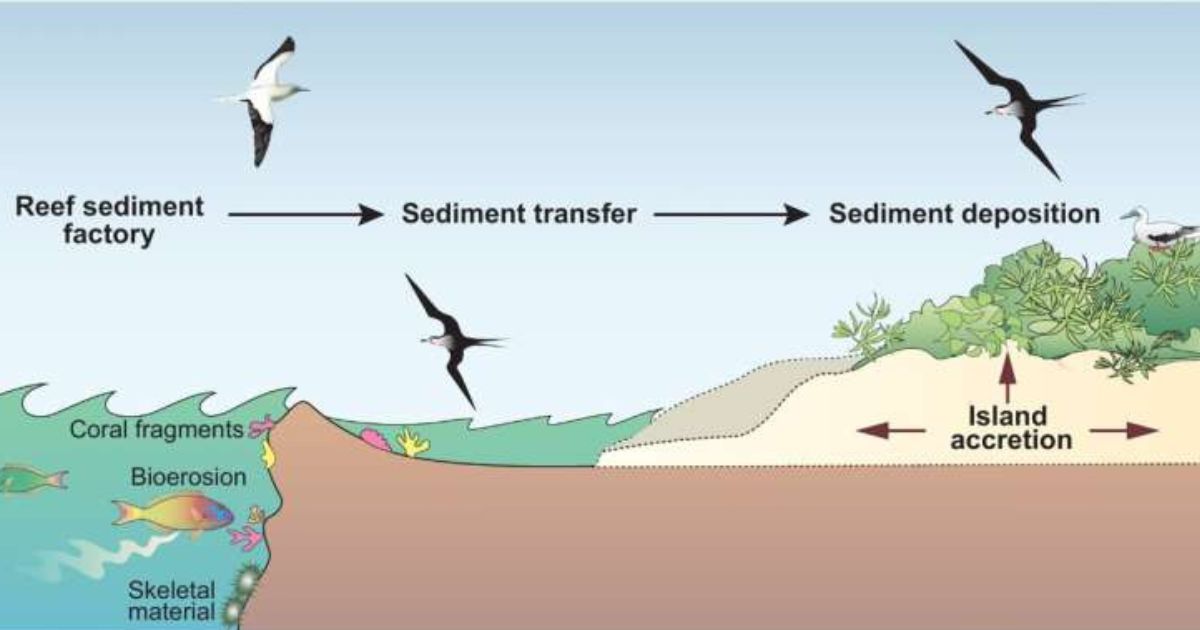Ecological restoration may save coral atoll islands from the rising seas of climate change, according to an international team of scientists, conservationists, and an indigenous leader.
While global carbon emission reduction is imperative, local measures could be the key to the islands outpacing sea levels, they argue in the journal Trends in Ecology & Evolution.
“Far from being doomed, in their natural state most coral atoll islands could adapt to sea level rise”, says Dr. Sebastian Steibl from the University of Auckland in New Zealand, lead author of the study. “This paper is a global call to identify and quantify the best measures for restoring atoll island growth.”
The world’s 320 tropical coral atolls are made up of thousands of islands and are a treasure trove of biodiversity, homes to millions of turtles and seabirds. These islands are naturally growing up to 1 cm a year by accreting sediment—enough to outpace most predictions of sea level rise.
Ecologically restoring this natural process holds the key to climate change resilience for the islands, says the team of scientists, who are already trialing restoration methods on atolls such as Tetiaroa and Palmyra in the eastern Pacific Ocean and Aldabra in the western Indian Ocean.
While densely populated islands such as in the Maldives will still need human-engineered solutions most coral atoll islands are sparsely inhabited and excellent candidates for restoration, the scientists say.
“Restoration of atoll island ecosystems is a proven conservation action that can significantly improve the health of the surrounding coral reef habitat,” says island resilience scientist and co-author Dr. Alex Wegmann from The Nature Conservancy in California.
The climate damage fund announced at COP28 is one potential mechanism for funding local restoration. “Funding restoration work would empower communities to take back ownership of their futures,” says co-author Professor James Russell, a conservation biologist at the University of Auckland
People living on coral atolls are largely ignored when industrialized nations negotiate responses to climate change. “Local knowledge alongside cutting edge science needs to be included in atoll restoration programs,” says cultural director of the Tetiaroa Society and co-author Hinano Teavai-Murphy, “because the traditional knowledge of Oceanian people has always been about respecting and preserving the connected marine and terrestrial systems.”



